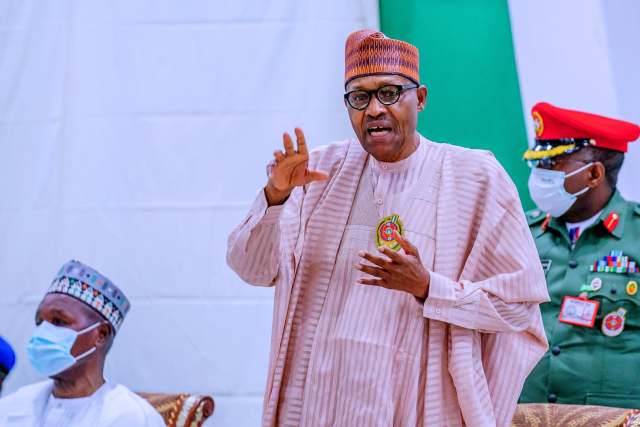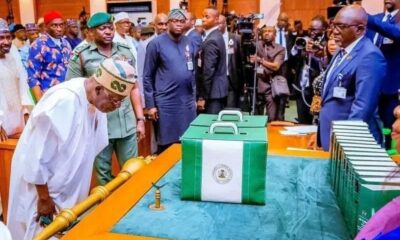Nigeria News
Why Buhari re-opened Nigeria’s shut land borders — FG source

The harsh economic situation occasioned by the outbreak of the Coronavirus pandemic and negative impact of the border closure on the private sector and the ordinary Nigerians made President Muhammadu Buhari to order the re-opening of shut land borders, a top Presidency source has stated.
The source who spoke on the condition of anonymity, yesterday, said that President Buhari had to order for the immediate re-opening of four land borders upon realising that ordinary Nigerians and the private sector were bearing the brunt of the closure.
The source disclosed that the Buhari administration felt it had already made the point by signaling to some of the neighbouring countries that Nigeria would no longer sit by and allow some of the untoward economic onslaught against the country to go unchecked.
The source said, “According to the report of a Presidential Committee which recommended the reopening of the border, one of the significant issues that stood out in the summary of the committee’s findings and recommendations include the negative impact of the border closure on the private sector.
“The report noted, among other things, that the continued closure had negatively impacted some private sector businesses in Nigeria.
“Other fresh facts that emerged from the report on why the Federal Government reopened the borders that were shut on August 20, 2019, was the very high inventory of unsold finished manufactured goods, especially those with market base and significant presence in West Africa, which ultimately led to unemployment and poor credit rating.
“At the onset of its work, the committee led by the Minister of Finance, Budget and National Planning, Mrs Zainab Ahmed, had ordered a comprehensive but objective impact assessment which revealed that “despite the significant benefits of the partial border closure in helping to curb the activities of smugglers, irregular migrants and other forms of criminality, among other benefits, the committee’s findings revealed that the policy was potentially detrimental to Nigeria’s overall immediate and long term economic, security, diplomatic and social interests,” the source explained.
























